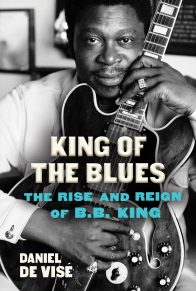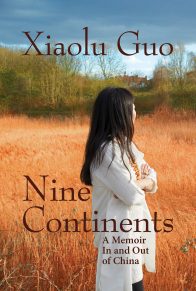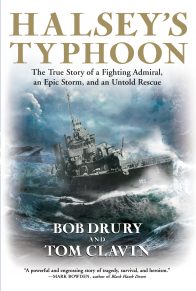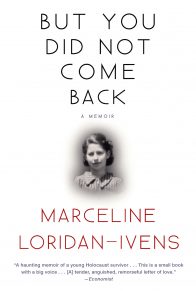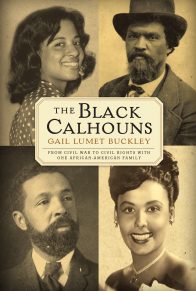“Part memoir, part biography, part military history, Carew’s first book is also a lovingly unconventional elegy for a generation.”—Dawn Raffel, San Francisco Chronicle, “Top 10 books of 2017”
“Oh this book. Beautiful and fierce and brave. Memory and war and family and loss and, well, wow.” —Helen Macdonald, author of H Is For Hawk
“We all adored this hilarious and heartbreaking book—you’ll be so glad you read it.” —Costa Biography Award judges
“Keggie Carew dives deep into her father’s world in this extraordinary blend of personal memoir, biography, and World War II military history . . . Dadland brings to mind Helen MacDonald’s H is for Hawk in the way it soars off in surprising directions, teaches you things you didn’t know, and ambushes your emotions. It’s a similarly fierce and unconventional book that defies categorization to explore mortality, loss, life decisions and influences through a daughter’s intense bond with her father . . . Keggie Carew launched her own special operation to get a handle on her father as he lapsed into dementia in his eighties. She attacked her mission with verve, unearthing books, family letters, photographs, diaries, and official records at the National Archives in Kew, amplified by interviews with historians and surviving Jedburghs . . . Carew puts her father’s larger-than-life heroism in perspective by interspersing vividly intense war scenes with glimpses of his increasingly disoriented later years and frequently hilarious flashbacks to her childhood.” —Heller McAlpin, NPR.org
“[A] superb book.” —Sunday Times (UK)
“Part military history and part personal memoir . . . It’s an exorcism, ghost-hunt, and swim through the archipelago of her father’s shattered self . . . The shuttle between multiple timeframes and voices suits a character as vivid and layered as Tom Carew: a master of deception (in the preface, the author catches him signing a cheque with a different name), a fearless charmer more at ease in war than in peacetime, impervious to pain, and an inscrutable expert at poker and chess.” —Times Literary Supplement (UK)
“An astonishingly moving story: how, as she slowly lost her father to dementia, a writer pieced together the awesome truth about his recklessly daring wartime exploits behind enemy lines.” —Daily Mail (UK)
“A bravura tale of derring-do–stylish, unconventional, and utterly hilarious.” —Costa Biography Award judges
“Keggie Carew’s Dadland is a rare amalgam: It’s a memoir of the days her father Tom Carew spent as one of the dashing, daring ‘Jedburghs’ during World War II . . . Through a combination of her father’s archives, reunions with the remaining ‘Jeds,’ and her own observations of Tom Carew deep in dementia, the author pieces together a joint memoir/biography that tugs at the heartstrings even as it describes real feats of bravery, such as Tom’s parachuting into Occupied France with a tiny team to defy Nazis, and his incredible work in trying to maintain a free Burma.” —Bethanne Patrick, Literary Hub, “14 Books to Read This March”
“Moving . . . Dadland is a poignant look at a child’s changing perspective on her father’s life, a journey many children take as their parents grow older.” —John T. Slania, BookPage
“Celebrated as ‘Lawrence of Burma’ and ‘the Mad Irishman,’ Carew was the youngest officer ever to be awarded a Distinguished Service Order . . . Dadland uncovers Tom’s adventures in war, but these long, detailed passages of history-writing are framed by Keggie’s memories of family life, both glorious and painful, and by more recent tales of her father’s erratic behavior. Many of these anecdotes . . . transmit the comedy and sadness of caring for someone with dementia . . . This chiaroscuro of dad-as-hero and dad-in-decline patterns a book which is as much about love and family as allies v axis . . . It’s a book about a singular man. Even near the end of his life, Tom managed to charm and astonish . . . [An] original, moving book.” —Guardian (UK)
“A woman revisits her faltering father’s exploits in World War II, and a marriage that felt almost as violent as the war, in this energetic memoir . . . Carew’s vivid narrative takes readers briskly through the horrors and excitement of war, portraying Tom as a vigorous, charismatic soldier fully in his element . . . Carew’s evocative blend of biography and memoir maintains a warmly clear-eyed tone while taking the full measure of dysfunctional and disappointed lives. Even the scenes of Tom succumbing to Alzheimer’s have a dotty charm. This is a scintillating portrait of Britain’s Greatest Generation at war and uneasy peace.” —Publishers Weekly (starred review)
“One of the most vivid books I have ever read about the cut and thrust of family life, its best of times and its worst of times . . . A rich and stunning achievement, a feat of imagination that sews together many parallel true stories. Above all, it is a labour of shining daughterly love.” —Sunday Express (UK)
“Dadland is part family memoir, part history book, and is compelling and moving from start to finish . . . [Keggie Carew] hasn’t just uncovered the facts about her father’s war; she’s inhabited it imaginatively with him, for him, and has recorded it vividly as his own grip on memory wavers and fails . . . Carew’s funny, fascinating and unflinching tribute to her father is a portrait of a complex man: not just a war hero but a flawed husband; not just a Jedburgh but her incorrigible and much-missed dad.” —Financial Times
“Read enough memoirs and you’ll see authors claim triumph and tragedy by plastering pathos like troweled-on makeup. None of that here, Carew underplays almost everything, letting her stories do the work and zipping easily between times and timelines. The facts are golden (cameos from fake SAS men, CIA directors, quasi-evil stepmothers) but from them she could not have made something more outstandingly good.” —Esquire (UK)
“An astonishing biography . . . Dadland mixes intimate memoir, biography, history and detective story: this is a shape-shifting hybrid that meditates on the nature of time and identity . . . Tom Carew was a razzle-dazzle character, larger than life and anarchically self-invented . . . For all its vigor and comic zest, Dadland is a careful and tender discovery that patiently circles around a man who spent his life mythologizing and running away from himself.” —Observer (UK)
“A fascinating mix of military history and family memoir.” —Times (UK)
“Dazzling . . . An unforgettable portrait of a maverick father who is in the process of forgetting everything, including the exploits for which he was awarded a Croix de Guerre. But it’s so much more besides: a detective story, a family history, a thrilling tale of derring-do, and the most distinctive and affecting memoir I’ve read since H Is for Hawk.” —Bookseller (UK), “Book of the Month”
“In Dadland, [Keggie Carew] tells [her father’s] story . . . with poignancy and humour.” —Vogue (UK)
“How lovely to discover a book that makes one seize friends by the lapels and implore them, ‘read this’ . . . On one level, Keggie Carew’s Dadland is a wartime adventure story. On another, it is an investigative memoir, a history of how one family’s fortunes can be sunk. But above all it is a portrait of a lovable, charming, mischievous old rascal named Tom Carew . . . [A] wonderful book.” —Literary Review (UK)
“I was so absorbed and moved by Dadland I haven’t been able to read anything else. It is beautifully written–deft and funny and so tender—but I have also come away knowing more about history, more about dementia, more about men, more about daughters, more about love, family, sheds, diaries, an inquisitive mind and peeing in plastic bottles. I loved it.” —Rachel Joyce, New York Times bestselling author of The Unlikely Pilgrimage of Harold Fry
“I loved Dadland for its tenderness, humor and candor . . . It has also taught me something deeply moving about tolerance, and about love.” —Robert Macfarlane, author of The Old Ways
“Dadland is a wonderful, haunting and beautifully written memoir unlike any other I have ever read. While it is the journey of one man’s life, with his wartime triumphs, post-war disappointments and eventual decline into dementia, it is also the voyage of his daughter as she tries to reclaim the father lost to her and unravel the past she never knew. I found myself laughing out loud at times and, at others, unable to hold back the tears. It is a profoundly rewarding and life-affirming book of many layers and a deeply moving homage to that extraordinary generation who lived, loved and fought through the Second World War. An absolutely stunning book.” —James Holland, author of The Fall of the Axis, 1941-1943
“Captivating . . . A tender evocation of an extraordinary life.” —Kirkus Reviews
“Between a young man’s inspiring war record and his last years struggling with dementia, Keggie Carew pieces together the complex, fascinating life of her father Tom, flaws and all . . . Continually interesting and often moving . . . The real success of the book is the understanding the author acquires of the waywardness of experience, and of the complexity of family relationships.” —Scotsman (UK)
“A moving memoir-cum-biography.” —Irish Times (UK)
“An intoxicating blend of history, memoir and biography.” —BBC Radio Bristol
“Engaging, funny and evocative.” —Tablet (UK)
“An amazing read: touching, absorbing and altogether the kind of book I love . . . Dadland is a father-daughter story, a tragedy of descent into senility, a quest to connect and–most importantly for family historians–an almost perfect example of how a personal family story, told well, can resonate and reach a wider audience.” —Sally Hughes, National Archives (UK)
“A mesmerizing performance by a natural storyteller gifted with the most seductive material possible, in the wild and wonderful life of her exasperating Irish father. Pain and annoyance is transmuted into pure narrative gold, as Keggie Carew interrogates the legend of this wartime adventurer and the bitter comedy of his domestic relationships and his late decline. A brave, risk-taking tale that alarms, delights and moves. As soon as you come to the end, you want to start again, to see if those things really happened.” —Iain Sinclair, author of American Smoke







